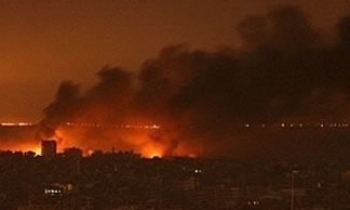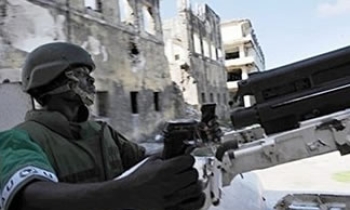International press freedom and free expression groups have expressed concern over the systematic attacks, intimidation, harassment, sexual abuse in custody and arbitrary detention of journalists by security forces in Nepal.

At the end of its weeklong visit, the international media mission said in a statement Saturday, "Intimidation, harassment, attacks and detention of media professionals, particularly in the districts, have continued and furthermore, government pressure on independent media, especially through 'one-door advertisement policy', and self-censorship as a result of the actions of the national authorities, security forces and combatant parties have increased."
The twelve international organisations said they noted an alarming number of cases of harassment, intimidation, illegal detention, torture, restrictive directives, destruction and seizure of equipment, and attacks on media houses by all parties to the conflict. They also criticised Maoists for not respecting press freedom and harassing media professionals.
The International Advocacy Mission for Press Freedom in Nepal is a joint initiative of a dozen of international media organizations across the world to uphold the cause of protecting the media rights that lay widely curbed in the post-February 1, 2005 scenario of Nepal. Twelve international media organisations � ARTICLE 19, Free Voice, International Federation of Journalists (IFJ), International Freedom of Expression Exchange (IFEX), International Media Support (IMS), International News Safety Institute (INSI), International Press Institute (IPI), Reporters sans Frontières (RSF), South Asia Press Commission, United Nations Educational, Scientific and Cultural Organisation (UNESCO), World Association of Community Radio Broadcasters (AMARC) and World Press Freedom Committee (WPFC) participated in the mission. Three other organisations, which participated in the July 2005 mission, are supporting the return mission in March 2006. These are Committee to Protect Journalists (CPJ), Press Institute of India (PII), and World Association of Newspaper (WAN).
During their stay in Nepal, the members of the mission met a broad cross-section of the national media community to discuss the press freedom and freedom of expression situation. They met national authorities, political parties, law experts, civil society representatives and 'combatant parties' to stress the need for unconditional respect for press freedom. King Gyanendra turned down the mission's request for a meeting. The members of the mission also participated in a national conference on press freedom in Nepal in Kathmandu on March 24.

The mission also pointed out the increasing involvement of the Royal Nepalese Army (RNA) and armed police forces in incidents of press freedom and freedom of expression violations, as well as interference in the media sphere.
Proposals for a broadcasting authority and the creation of a media council through new media ordinances would further endanger the survival of independent media and freedom of expression in the country, as these would introduce highly restrictive provisions against independent media, placing curbs on freedom of expression and press freedom in contradiction to the principles of the 1990 Constitution, it said.
The mission also objected to the government's admission to supporting an alternative journalists' association. "The dismissal of state media practitioners for refusing to join this state-supported association demonstrates direct interference in the free choice of association," it said.
"The refusal of the government to respect freedom of expression and press freedom erodes 15 years of development for the media community in Nepal, as well as undermines democratic and economic progress and the chances of a peaceful resolution to the conflict in the country," the misison members said.
They said all combatants in the conflict were responsible for abusing and contravening press freedom rights. They demanded that the Terrorists and Disruptive Activities (Control and Punishment) Ordinance, 2005, or TADO, must not be used to curb freedom of expression, and called for the immediate release of journalists from prison, including Shyam Shrestha, and an investigation into the custodial death of journalist Maheshwor Pahari.
The international mission stressed that all media practitioners who had undergone maltreatment and torture by security forces must be compensated, and reiterated that media practitioners are protected under national and international law and agreements and that those who violate these must be held accountable and be prosecuted.

They demanded that media professionals in districts be allowed to report independently without facing pressure from the government and Maoists to reveal sources of news.
The government should refrain from introducing any new ordinance or provisions that would alter or override media rights as enshrined in the 1990 constitution and international obligations, the mission members said, demanding the withdrawal of one-door advertisement policy which "has threatened the financial viability of media."
The international media monitors further said the government must reverse the exorbitant fees levied in postage of small and medium sized newspapers in the districts and demanded that they should be allowed to use public methods of transportation to distribute their publications without interference. The mission also demanded the withdrawal of restrictions imposed on some online news portals and FM radio stations from broadcasting their news.
The mission also urged the international community to continue to address the violations of press freedom and freedom of expression in Nepal, and seize every opportunity to promote these rights.









